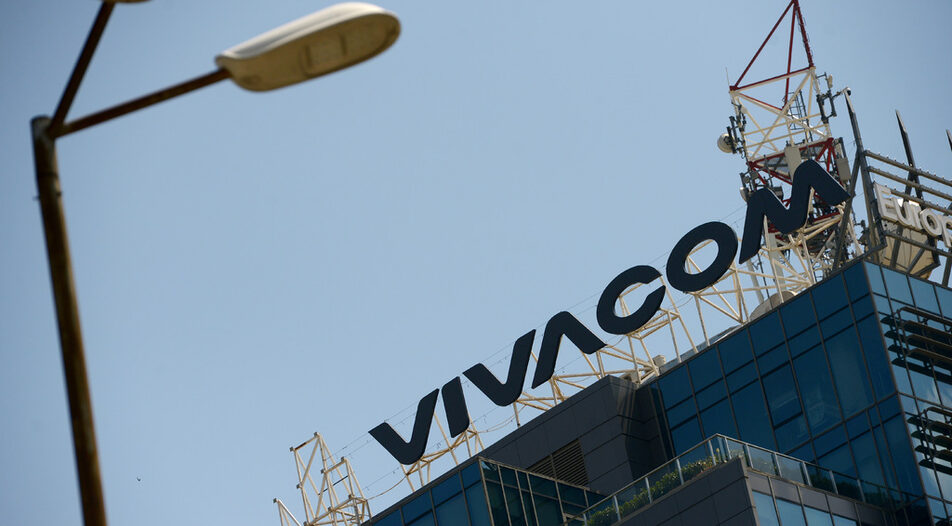The rivalry among the large telecommunications operators in Bulgaria has entered a new phase, after the Commission on Protection of Competition (CPC) allowed - again - Vivacom to acquire internet and TV providers Telnet in Veliko Tarnovo and Networx-Bulgaria in Ruse. The decision prompted a fierce reaction from A1 Bulgaria and Yettel Bulgaria that involved even their respective parent groups, A1 Telekom Austria and PPF.
The deals were announced in 2021 but were suspended by the Supreme Administrative Court (SAC) in late 2022 and returned to the CPC for review following the competitors' protests. Now the anti-trust body has confirmed its original decision, clearing the concentration. The transactions concern several subsidiaries of the two regional operators too: Telnet's Telnet Security and S.T.V., and Networks-Bulgaria's Online Direct, TVH Distribution Bulgaria and Telco Infrastructures.
Earlier in 2021, the CPC allowed Vivacom to buy Sofia-based internet and TV providers Net 1 and ComNet Sofia, as well as Plovdiv-based N3. The transactions followed the change in ownership of Vivacom (called Bulgarian Telecommunications Company at the time) and its acquisition by United Group, a media and telecommunications group set up by Serbian businessman Dragan Solak. A few months earlier the group had bought Nova TV, Net Info and the Telegraph newspaper group in Bulgaria.
In the beginning, the series of acquisitions of TV and internet operators was not met with much opposition by Vivacom's main competitors: Bulsatcom, A1 Bulgaria and Telenor Bulgaria (later renamed to Yettel Bulgaria). In their stands to the CPC they hinted at a "potential risk" and concerns that the deals might create "preconditions for anti-competitive behavior on behalf of the Bulgarian Telecommunications Company." But as the company continued its shopping spree, Telenor challenged the acquisition of Networks-Bulgaria's group before the SAC.
The magistrates found a problem in the fact that the CPC had not assessed the cumulative effect of Vivacom's separate deals on the market and returned the decisions for review. The SAC also noted that the anti-trust body had not taken into consideration the stand of the Communications Regulation Commission, which voiced concerns about potential concentration and distortion of competition on the wholesale market of fixed-line services.
Meanwhile A1 and Yettel got into another conflict with Vivacom: late last year they approached the CPC over the acquisition of Bulsatcom by Spas Rusev, a local businessman, claiming that the deal could hurt competition, as it was funded with a loan from Vivacom's owner, United Group. Yettel said the indirect acquisition of Bulsatcom's infrastructure and the funding of the deal would give Vivacom a dominant position with more than 60% of the TV distribution market and nearly 40% of the internet market.
In its second decision, the CPC found A1 and Yettel's concerns ungrounded. The anti-trust body noted that the planned deals would give the new united group "neither the ability, nor the stimulus to curb effective competition."
A1 and Yettel's reaction
Now with the CPC's new decision that gives the green light to the acquisition of Telnet and Networks-Bulgaria, A1 and Yettel again warn of concentration of too much market power on behalf of Vivacom. The owners of the two telcos, Austria's A1 Group and Czech PPF Telecom Group, released statements to the media and the European regulators, warning the decision would undermine competition and create a dominant player in the person of Vivacom.
"Going forward pending final approval of yet another acquisition of economically and infrastructurally strong operators would enable Vivacom to acquire over 60% of the TV distribution market and nearly 40% of the internet market. Such consolidation not only hampers market competition but also runs counter to the best interests of society as a whole," A1 said.
Yettel's PPF noted that the CPC's decision "contradicts accepted European norms and practices" and "shows blatant disregard for recent European rulings that have prevented transactions that would have created regional concentrations of market power." According to PPF, the transactions "will lead to Vivacom controlling close to 70% and 50% of the internet access market respectively in the region of Rousse and the regions of Varna, Razgrad, Silistra and Sofia City."
The two international groups also drew attention to the Bulsatcom deal and noted "concerning and blatant disregards of regulatory procedures", referring to the fact that the acquirer, Spas Rusev, had failed to notify the CPC promptly about the deal and the source of its funding.
Vivacom's reply
The following day Vivacom replied to the accusations of concentration. "The co-ordinated statements from A1 and Yettel are misleading and inconsistent with the CPC's findings. Their joint attempt to include Bulsatcom as part of Vivacom's market share is wholly inaccurate and shows evidence of collusion," Vivacom said. The company noted that it currently holds a 31% share of the fixed broadband market and 33% of the pay TV market in Bulgaria in terms of subscribers, compared to shares of 28% for A1 and 35% for regional and local market players.
Vivacom also drew comparisons with "other markets in Southeast Europe, such as Croatia where Deutsche Telekom holds over 60% of the fixed broadband and pay TV market, and Greece, where its share exceeds 50% through controlling stakes in local incumbents."
The rivalry among the large telecommunications operators in Bulgaria has entered a new phase, after the Commission on Protection of Competition (CPC) allowed - again - Vivacom to acquire internet and TV providers Telnet in Veliko Tarnovo and Networx-Bulgaria in Ruse. The decision prompted a fierce reaction from A1 Bulgaria and Yettel Bulgaria that involved even their respective parent groups, A1 Telekom Austria and PPF.
The deals were announced in 2021 but were suspended by the Supreme Administrative Court (SAC) in late 2022 and returned to the CPC for review following the competitors' protests. Now the anti-trust body has confirmed its original decision, clearing the concentration. The transactions concern several subsidiaries of the two regional operators too: Telnet's Telnet Security and S.T.V., and Networks-Bulgaria's Online Direct, TVH Distribution Bulgaria and Telco Infrastructures.












